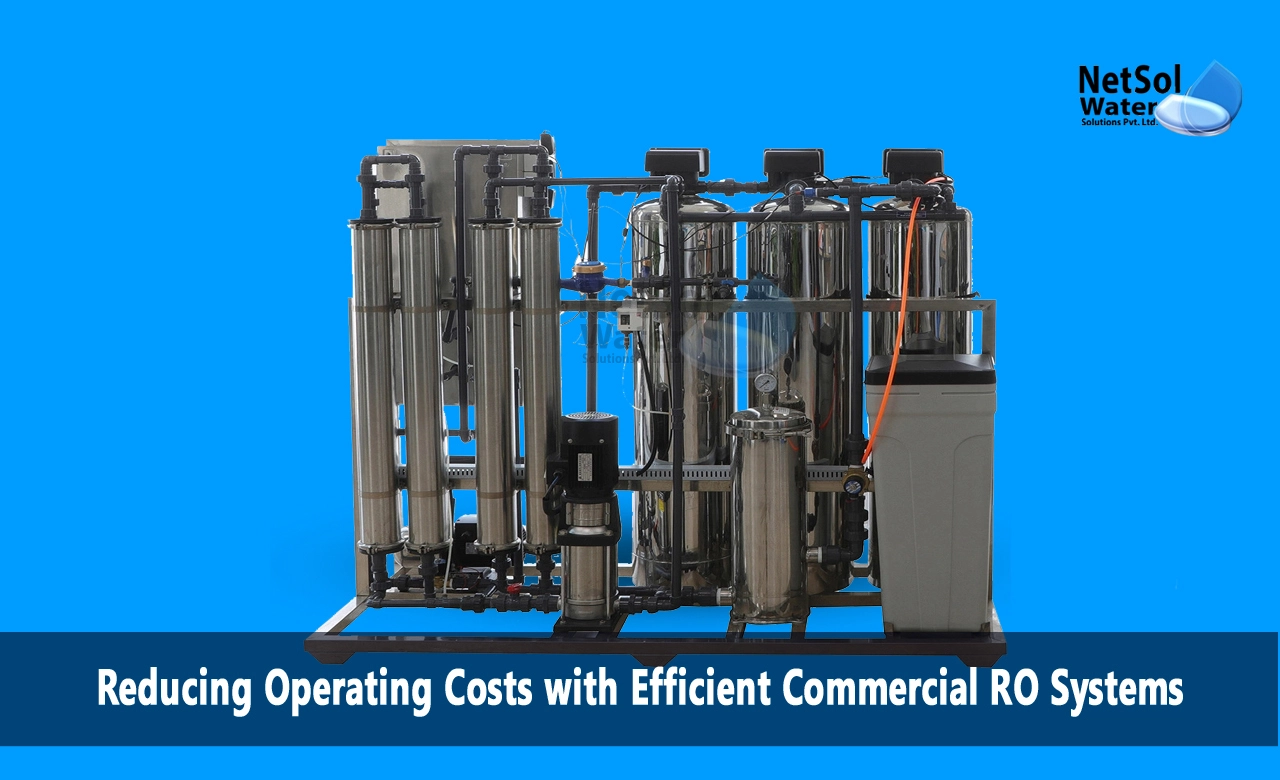How to Reduce Operating Costs with Efficient Commercial RO Systems?
Reverse osmosis (RO) is a water purification process that uses a semi-permeable membrane to remove ions, molecules and larger particles from drinking water. RO is used to produce pure water in many commercial and industrial applications. While extremely effective at producing high quality water, RO systems also consume substantial amounts of energy. This blog will examine strategies for reducing the operating costs of commercial RO systems through improved energy efficiency and optimization.
RO Process Overview
In the RO process, pressurized water is forced through a semi-permeable membrane that allows water molecules to pass through while blocking larger contaminants. The membrane acts as a microscopic strainer, filtering out dissolved salts, metals, minerals and organics. Clean water passes through the membrane into a storage tank, while the concentrated contaminants are flushed away as wastewater.
RO systems require high water pressure to drive the separation process. The pressurized water supply comes from an electric water pump. After passing through the membrane, the purified water must also be repressurized before distribution. The high pressure pumps used in RO systems are a major contributor to energy consumption and operating costs.
Improving Pump Efficiency
Upgrading to energy efficient, high service pump systems can significantly reduce power usage. Motors should be properly sized for the pump load to avoid wasting power. Variable frequency drives can also optimize pump speed and energy use by automatically adjusting the motor's RPMs to match real-time demand.
Using booster pumps and smaller distribution pumps prevents the high pressure RO pump from working harder than necessary. Multi-stage pumping better matches required pressures for pre-treatment, membrane separation and distribution.
Monitoring, maintenance and leak detection also helps pumps operate more efficiently. Routine preventive maintenance ensures pumps are kept in peak operating condition.
Optimizing Membrane Performance
The RO membrane itself can account for up to half of an RO system's energy consumption. Keeping membranes clean and free from fouling and scaling maximizes their lifespan and reduces energy needs. Periodic clean-in-place procedures restore membrane permeability and prevent pressure loss.
Monitoring salt passage and normalized permeate flow provides insight on a membrane's condition. Conductivity meters help detect gradual membrane failure before energy efficiency is impacted.
The recovery rate, or the percentage of feed water that passes through the membrane, also affects energy usage. System recovery rate should be optimized based on the properties of the feed water. Lower recovery rates require less energy but generate more wastewater.
Process Optimization
RO systems should be designed and operated to minimize energy demand while still achieving water quality goals. Variables like feed pressure, flow rate and membrane selection can be balanced to optimize efficiency.
The most energy-efficient systems run at the lowest pressures and flow rates that are capable of producing the desired permeate quality and quantity. Operating at higher pressures or flow rates than necessary wastes energy.
Automated monitoring and control systems help maintain optimal pressures and flow rates as operating conditions change. Advanced instrumentation also enables remote monitoring and diagnosis of performance issues.
Conclusion
Operating and maintaining a highly energy-efficient commercial RO system requires both technology upgrades and an optimization mindset. New pump systems, optimized membrane performance and intelligent process controls can unlock substantial energy savings. With rising energy costs, reducing the operating expenditures of commercial RO systems through efficiency gains provides significant value. Careful design, monitoring and operation are key strategies to minimizing the energy demands of commercial reverse osmosis systems.
Do you need an advice or assistance on selecting the best water and waste water treatment unit? We have solutions for all your problems!
Let us know your problem, our experts will make sure that it goes away.
For an assistance or related query,
Call on +91-965-060-8473 Or write us at enquiry@netsolwater.com



